- Home
- Bill James
World War Two Will Not Take Place Page 6
World War Two Will Not Take Place Read online
Page 6
(1) He must decide the best time of day or night for it.
(2) No window entry was possible because Toulmin didn’t live on the ground floor, so Mount would need a reconnaissance to identify the apartment from inside the building, before an actual crack at entering.
At Lichtenberg, Toulmin’s place was in one of those famous apartment blocks made of prefabricated concrete slabs, plattenbauten. Mount loved the mass-produced look of them. For coolness and lack of frippery, these buildings went even further than the ‘New Objectivity’ creations in Steglitz. People needed accommodation, and they could get it in Lichtenberg behind such gorgeously unfancy, swiftly installed walls. Plain, utilitarian, grey-buff facades announced their honest purposeful purpose – shelter. This was how architecture should be. It recognized a job had to be done and did it. A crane swung an arm about for a couple of days a few years ago, dangling those destined jigsaw rectangles, and suddenly, out of nothing, homes arrived. Hitler often demanded living room for the German people, Lebensraum. Well, voilà, old cock! Plenty of living rooms here in neat, two and three storey developments.
Mount had been brought up in Bath when not away at school. His mother still lived there for some of the year. You could get sickened by the saucy elegance and swank of all that smug Georgian stuff in piss-yellow local stone. Beau Nash, the eighteenth-century Welsh dandy-fop, delighted in Bath. Naturally he did. Curved streets – why? Flamboyant. Someone had had a bad attack of geometry: describe an arc and call it Royal Crescent.
You didn’t get any of that malarkey in Lichtenberg. When they originally took on Toulmin as an agent, Mount and Nicholas Baillie secretly tailed him home one evening to check he lived where he said: standard courtesy for new chums, or those wanting to become chums. Mount fell for the construction style then, rhapsodized to Baillie about its clever practicality. Nick objected. He would. While doing an ink sketch of the frontage to mark out what they guessed to be the Eisen or Toulmin windows, he had sounded off with the stock arty chatter about concrete’s drab impersonality and the inherent slabbiness of slabs. The buildings looked jaily even without iron bars, he’d said. Anyone could tell he was stuck with standard, snobby Cambridge reverence for the pretty lines of King’s College. Of course slabs were slabby. Slabbiness kept winter out. Personality? Yes, they had personality – dutiful, protective, unpretentious, good at fitting in.
Mount had memorized Baillie’s drawing and could identify what might be the windows of Toulmin’s apartment, just as Toulmin could identify his second floor flat in Steglitz, though Toulmin never had to signal a welcome with lights, because the rules of contact said Mount must not, repeat NOT, come calling, or even hang about the district. Visits might deeply imperil the host. And in usual conditions Mount wouldn’t have visited or even reconnoitred. Conditions, though, had become very unusual, hadn’t they? He thought he might have to break in and do a nose about. The apartment was the only concrete – concrete! – connection he had with Toulmin now. It gave a focus, of a sort. He didn’t know which sort, only that it seemed more precise than wandering around the Diplomatstrasse pavements near the Foreign Ministry.
But the break-in must be a far-off prospect. It assumed he never saw Toulmin coming or going outside, and never managed a word or two. It also assumed the apartment remained dark at night. In a sense, Mount did want a signal from Toulmin’s lights. Of course, if the lights came on they wouldn’t necessarily prove Toulmin was present, or Toulmin alone. There might be a reception group, devoted to the Fatherland and Lugers, hoping to catch someone searching for him at one of the two most likely spots: his home and the Ministry.
Mount began to list in his head further difficulties in this operation. He resumed the numbering:
(3) The need to identify Toulmin’s apartment from inside the building arose because, when he and Bailey had checked Toulmin’s address, they decided it would be too obvious to follow him up stairs and along a corridor as far as his front door. It would have required them to stay impractically close. The fact that he’d gone into the building was enough. If he’d noticed them it could have made him feel not wholly trusted. And, of course, he wasn’t, at that early stage, when he hadn’t been fully transformed from Konrad Paul Eisen into Samuel Toulmin. But you had to look after an agent’s self-esteem and morale, in case you needed to exploit them some time. They thought they’d glimpsed him momentarily at one of the windows just after they’d stopped following, and this gave Baillie the basis for his sketch.
(4) Mount would have to note the door’s type – solid wood or ply on a frame.
(5) Note, also, the number and nature of lock, locks. Did they look ticklable by the bunch of children?
(6) He must assess the likelihood or not of getting enough time in a corridor to open the door unobserved by neighbours. But, clearly, it would be a guess, not a proper assessment: no telling when someone might pop out from one of the other nearby flats to go to the bierkeller, or smash up a few shops owned by Jews, if any still were.
(7) He’d need to be alert for signs that the apartment had become a trap, though he couldn’t itemize what those signs might be. If they were in there, eager for his arrival, they wouldn’t put a sentry on the door outside or a ‘Knock and Enter’ plaque. For this kind of situation, training had suggested trying to detect whether cigarette smoke escaped under the door and/or through the keyhole. Well, yes. But did he have nostrils sensitive enough to smell it, and the time to smell it on a quick, pre-break-in, research walk through the building?
(8) He ought to observe if there were anyone, or more than one, keeping an eye on the block and on everybody who entered – particularly on somebody like Mount, who blatantly wouldn’t have an apartment to go to or call at.
(9) If there were such patrols, that might be the end of things. They’d nab him, most probably, or at least glue continuous surveillance to him. Which would close down all activity. There’d be no break-in at the apartment and possibly no more safety at Steglitz. He would have to implement ‘instant unscheduled closure of mission and withdrawal’ from Berlin; in fact, from Germany. If, that is, they’d permit withdrawal, which, obviously, they wouldn’t. You didn’t concoct a trap for someone so as to let him out of it.
Before entering the block for his look-around, Mount walked the streets near Toulmin’s flat at all times of the day and night for half a week. He did not concentrate any longer on the go-to-work and return-from-work hours. That would be illogical. Hadn’t Mount’s failed trawls proved Toulmin was absent from the Foreign Ministry? Now, his trawls at Lichtenberg seemed to prove Toulmin was absent also from his flat. Mount did not encounter him about the streets, and no lights shone in his windows at night, although the curtains were back. He had to keep in mind that, if things had gone wrong for Toulmin, they’d be paying attention to this entire area, as well as to the apartment itself, qui viving for any of his spy-trade contacts doing a heartfelt search for him. Mount was a spy-trade contact doing a heartfelt search for him. He varied his routes and walked as if he had a destination and an aim. He did have a destination and an aim, but he’d rather not be asked what these were, for instance by a trio of intent and bulky lads in an unmarked car. Of course, nearly all cars he saw were unmarked. He eyed each of them. It was the driver and passengers who interested him, not the vehicles as vehicles, especially if the driver and passengers looked intent and bulky and male.
Suppose such a patrolling contingent did show up and stop him and invite conversation, or at least invite answers to questions, what should he say about his reasons for being here? And, if they had spotted him previously, what should he say about his reasons for being here not only now, but regularly for the last few days? Could he say – credibly say – he was thinking of coming to live in this area and wanted to give it a good once-over before making his choice? Yes, he could say that, he hoped credibly. Yes, he would have to say that. He couldn’t think of anything else to say. He made himself remember street names, so he could express an interest in dwel
lings here or there, or register distaste for other streets. It might be an idea to find an estate agent somewhere and get a load of brochures about lettings or sales.
To keep himself reasonably calm and clear-headed about why he had come to Berlin at all, he went over in his head as he walked more of SB’s briefing at their private Section meeting. ‘Oh, yes,’ Bilson had said, ‘Russia and Germany might look like inevitable enemies. But such appearances are always adjustable, in the interests of survival. Survival is quite a motivator. Think of Darwin.’
‘But which of those two might have fears for their survival?’
‘Russia was excluded from that snug little Munich causerie from which our Prime Minister has just returned.’
‘Russia’s interests were not directly involved, were they?’ Oh, hell, did that show more naivety, Mount wondered.
Bilson had been patient. ‘It depends what we mean by “directly”, doesn’t it, Marcus? Try to see the Munich chats as Stalin might. He observes Britain, France, Italy, Germany apparently cosily concordatting. Does Moscow suddenly feel shut out and menaced by a gang of four?’
‘The Munich Agreement was surely defensive – peace for our time.’
Bilson sighed. ‘Sweet, modestly limited phrase, isn’t it? But the defensiveness is as we see it. Consider Uncle Joe’s view. Four against one. Not defensive at all. A hunting pack? Mightn’t he want to weaken that quartet by sneaking a separate agreement with one of them – say, Adolf, easily the most dangerous and unpredictable? There’s already the 1926 neutrality agreement between Russia and Germany, isn’t there?’
Was there? Toulmin had said so. ‘Oh, quite, sir.’
‘They might wish to bring it up-to-date. That could look reasonable enough, legitimate enough, diplomatic enough.’
‘And if an agreement is being cooked up?’ Mount asked.
Bilson’s answer seemed oblique. ‘Do you ever look at the left-wing journalist Claud Cockburn’s paper, The Week?’
Mount said: ‘Well, I—’
‘You should.’
Caught up in these recollections, Mount had not been concentrating enough on his walking style as he hiked the streets around Toulmin’s apartment block. His pace had dropped to a stroll. Someone ambling along like that, with no apparent purpose, could cause curiosity. He might give the impression he was looking for someone, something. He was looking for someone, but didn’t want to look as though he was looking for someone. He upped his speed a little. Not too much. He might need to suggest he had a destination, but not that he wanted to get to it urgently. That, too, could cause curiosity in anybody keeping a watch. Perhaps someone would wonder: why this urgency? Especially if that someone had orders to spot a visitor who might be making for the Toulmin apartment. Mount needed moderation – a relaxed, but not too relaxed, progression: faster than a stroll, but not a sprint. And if he were reconnoitring for a possible place to live he’d want to do it in a thoughtful, observant way, not at a gallop.
‘Cockburn has some clarity of vision, Marcus,’ SB had said. ‘Resigned-from-The-Times man, distinguished family with an Admiral who burned down the White House among his forebears, apparently. He’s continually lambasting what he calls “the Cliveden set”. That seems to mean the moneyed and, or, titled group, and their hangers-on, who think Hitler is no bad chap at all and might, on the contrary, be a saviour. Nancy Astor is said to be prominent: Viscountess Astor. Cliveden is the family seat in Bucks.’
‘A saviour from what, sir?’
Bilson gazed at him in a kindly, forgiving style, as if he were sure Mount knew the answer to this and, given time, would cough it.
‘From Russian communism?’ Mount said.
‘A similar state of things in France’, Bilson replied. ‘I hear of governmental and military opinion badly split as to the German threat.’
‘Do you think France would not fight, sir?’
‘Might not fight. Almost certainly would not fight effectively. Some of the high command are not committed. Some regard an arrangement with Germany, a nominally Christian country, as preferable to what they consider the only possible alternative, the Reds. The Reds would, of course, be welcomed by France’s Left – perhaps are already being prepared for. Against that, Centre and Right parties believe an occupation by Germany could be controlled and to a degree would stay civilized.’
‘Adolf, “controlled,” “civilized?”’
‘“To a degree.” A hope. Also, by agreement, the occupation might be only partial. Nearly half of France could remain French, possibly under Pétain, despite his age. It would be in the South and run from a provincial town, not from Paris.’ Despair seemed to touch Bilson’s face again. He would probably remember Pétain as he used to be, the revered Field Marshal leading the French in the war. ‘But enough of France,’ he said eventually. ‘The point is, Marcus, there are distinguished, even lordly, folk in Britain, too, who think the Nazis offer a bulwark against communism.’
On his Lichtenberg walks there were usually plenty of other pedestrians about. Mount could have done with more though, so he could merge and guarantee inconspicuousness. On the other hand, he had to try to study all these people, in case one of them, or two or three of them, seemed focussed on him. That would be trickier if the numbers were higher. And he had to examine the cars and their contents, too. A car did draw in ahead of him and he wondered if someone would step out on to the pavement and speak – speak something like, ‘May I see your papers, please?’ But it was an elderly woman who left the vehicle and went into one of the buildings. He walked on and passed the car. In a little while he heard it rev up again and soon it passed him, another woman at the wheel.
‘Did you see and hear that Eton phalanx at Heston, Marcus?’ SB had asked at their conference.
‘Eton?’
‘Certainly you did. Well, Etonians, but more especially Etonians’ mothers and fathers, and grandmothers and grandfathers, might find sweethearting with fascist Hitler reasonably tolerable, even desirable.’
‘Possibly.’
‘But not – repeat not – if Hitler’s into a rosy friendship with the big, brutal, anti-capitalist, revolutionary, sequestrating Commy bear. The Cliveden set and similar wouldn’t care for it either. Dread of Russia has dominated upper-crust thinking in Britain since . . . well, take a look at some old copies of Punch – the massive, fiery-eyed animal, muzzle dripping blood and fragments of civilized Europe just gobbled up. Bugbear. And, vice versa, Moscow’s Commie mates here would love to see Eton and its likes wiped out, as well as the Cliveden set and similar.’
‘You mean there’d be a ready supply of young, high-born, well-heeled officers again if Russia were one of the enemies, despite that Oxford Union vote and so on? They’d be glad to join up then, like the boys in that Newbolt cricket poem, or Rupert Brooke “into cleanness leaping”? So, if we can establish a coming together of Germany and Russia you’d advise the government that we should fight Hitler at once – regardless of the holy piece of paper and your previous view – yes, at once, immediately, before he and Stalin become allies and perhaps unbeatable?’
‘You read poetry, do you, Marcus?’
‘Poets occasionally have something to say.’
‘Maybe. There were a few in the war who had something to say. It could be quite sharp, quite penetrating.’
‘Owen? Sassoon?’
‘Look, my morale took a sickening blow at Heston, Marcus,’ SB replied.
‘Oh? Nobody could have guessed.’
‘But one has to keep buggering on, you know. That way, perhaps we’ll win. Only that way. Or, failing all else, there’s the visit.’
‘The state visit by Hitler? What about it?’
‘Oh, yes,’ SB replied. ‘There could be opportunities there.’ Bilson had a long, angular, full-lipped face, extravagantly lined forehead, and wore wire-rimmed, very fragile looking spectacles. Perhaps it was a keep-buggering-on sort of face, with the forehead trenches put there by the French mud ones, and the spect
acles helping him gaze, impassively, on horrors, as well as to snipe. Mount possessed no expertise on that, but Baillie might have recognized it. SB stood about 5′ 8″ and was as thin as a jockey. When a marksman, he wouldn’t have needed much cover.
‘You think war is certain, sir?’ Mount said.
‘For a time at Heston and afterwards I thought defeat was certain. It seemed we’d forgotten how to bite – could only yelp: “Neville, Neville, Neville.”’
‘Because of the Etonians?’
‘Because of what they and the rest of the crowd there symbolized. And I wondered: God, did I contrive this? I’d talked to the PM before he left, you know.’
No, Mount didn’t actually know, but he would have bet on it.
Now, on his Lichtenberg walk, he had Toulmin’s apartment block in sight. There appeared to be a small crowd around the entrance. He didn’t like that very much, but kept going.
‘Self-blame battered me,’ SB had said at their interview. ‘You claim not to have noticed, which is kind. But, of course, you did. And then I had a bit of a recovery. Thank heaven, it always happens. We do keep buggering on, don’t we? As the first move, I decided to send you to Berlin. I had to correct an error, and at once. Yes, I can see where it came from. When I joined the Service just after the war, its main concern was Russia and Russia’s British mates. The powers here feared copycatting of the 1917 Soviet revo. Why I mentioned the tradition of lurid anxiety in Punch, though that goes back into the last century. I considered this obsession with Russia to be only that – an obsession, and foolish, narrow, ill-informed. I tried to dispel my colleagues’ fixation by argument and, as far as I could, by pushing Russia to the far edge of my own thinking. A glib mistake. D’you know, the PM actually asked me on what basis we decided which information to let him in on and which we kept back as not relevant? I said, pompously, “Judgement.” And I judged that the Russian aspects need not be mentioned to him. You must help me compensate for that idiotic error, Marcus, while we have time, if we have.’

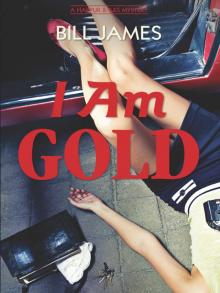 I Am Gold
I Am Gold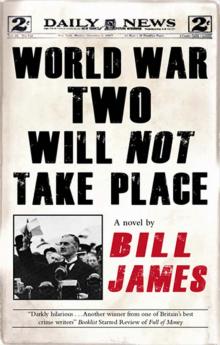 World War Two Will Not Take Place
World War Two Will Not Take Place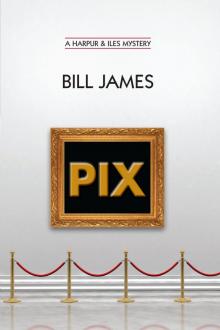 Pix (Volume Book 24) (Harpur & Iles Mysteries)
Pix (Volume Book 24) (Harpur & Iles Mysteries)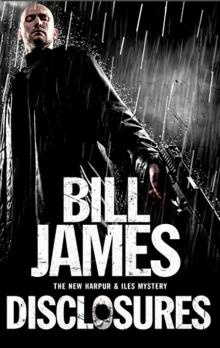 Disclosures
Disclosures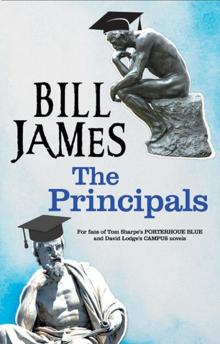 The Principals
The Principals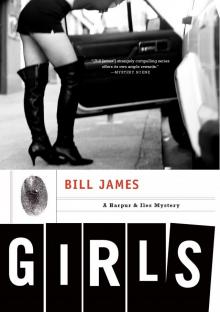 Girls
Girls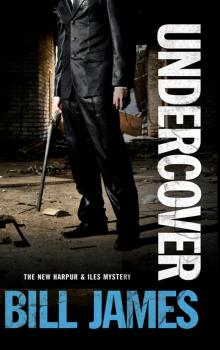 Undercover
Undercover Come Clean (1989)
Come Clean (1989)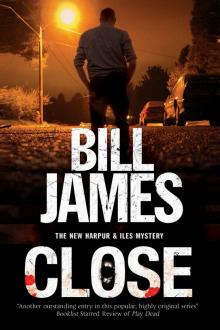 Close
Close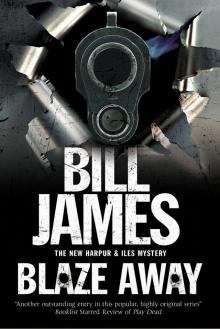 Blaze Away
Blaze Away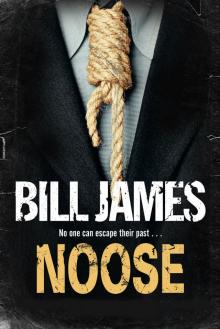 Noose
Noose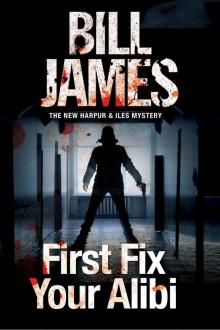 First Fix Your Alibi
First Fix Your Alibi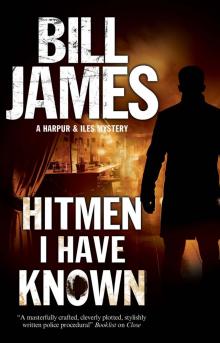 Hitmen I Have Known
Hitmen I Have Known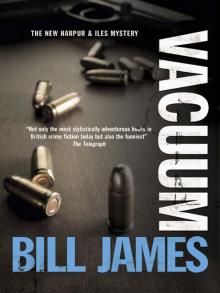 Vacuum
Vacuum Play Dead
Play Dead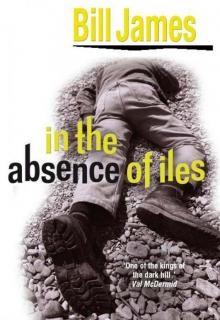 In the Absence of Iles
In the Absence of Iles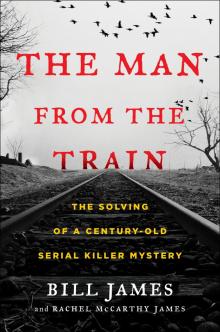 The Man from the Train
The Man from the Train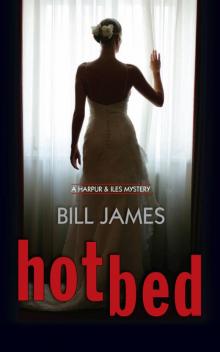 Hotbed
Hotbed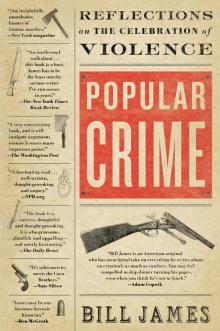 Popular Crime
Popular Crime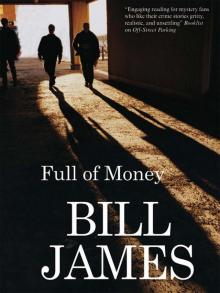 Full of Money
Full of Money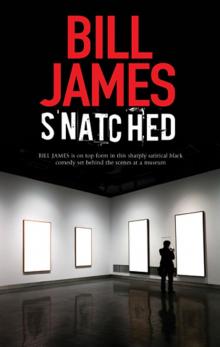 Snatched
Snatched